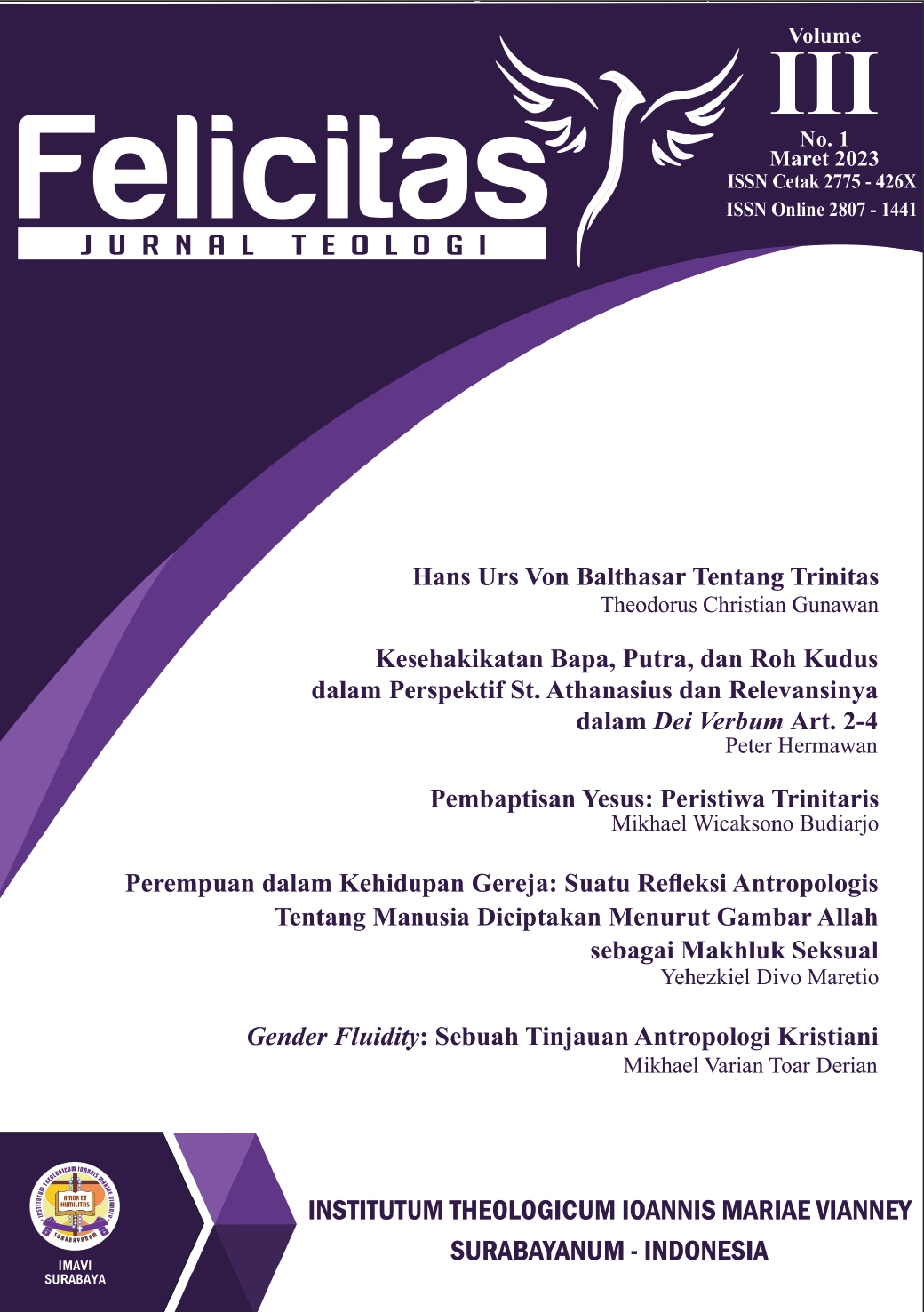Kesehakikatan Bapa, Putra, dan Roh Kudus dalam Perspektif St. Athanasius dan Relevansinya dalam Dei Verbum Art. 2-4
DOI:
https://doi.org/10.57079/feli.v3i1.102Kata Kunci:
God the Father, Son, Holy Spirit, Unity, ArianismAbstrak
The early church believed that Jesus Christ is the resurrected Son of God and the Savior who is inseparably and incomparably united with the Father. However, faith in the Trinity became problematic when Christianity entered the realm of ancient Greek thought. In the 4th century AD, there were heretics called Arianism and semi-Arianism, Pneumatomachoi. The followers of Arianism did not recognize the Son's relationship with God the Father. The Pneumatomachoi, on the other hand, did not believe in the attribution of the Holy Spirit to God the Father and the Son. St. Athanasius, a member of the Council of Nicene I, sought to defend the inerrancy of God the Father, Son, and Holy Spirit from the dangers of the heretics of Arianism and semi- Arianism. St. Athanasius in the face of Arianism asserted that the Son was not created, but born. Thus, God the Father and the Son are one. Then, confronting Semi-Arianism, St. Athanasius said the Holy Spirit is one with the Father and the Son and is not created. The Holy Spirit comes from the Son. Dei Verbum art.2-4 also states that God the Father, Son, and Holy Spirit are one as taught by St. Athansius.











